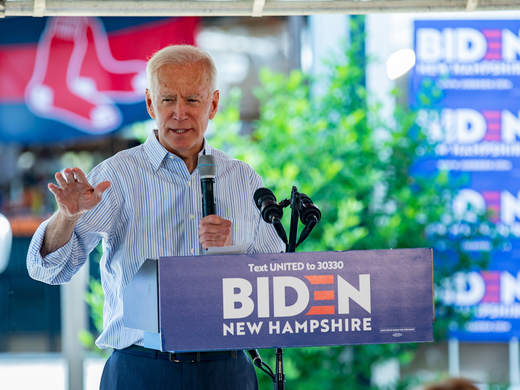In the lead-up to the US mid-term elections, both Democrat and Republican political campaigns flooded digital and broadcast media channels with bilingual Spanish/English ads targeting the Latino community. After all, the diverse communities that fall into this broad category of voters were viewed as a deciding factor not only for the mid-terms but also for what will likely be increasingly contentious US elections for years to come — in particular, the 2024 presidential contest.
But strategies for swaying Latino voters are changing, and arguably not for the better. In an effort to segment this massive population — filled with people who have roots, and often family, in other countries throughout the Americas — campaigns and other political groups are turning to increasingly illicit and deceptive methods of outreach. A great deal of this manipulative political communication is happening over encrypted messaging applications such as WhatsApp, Telegram and Signal.
The motivation for employing messaging apps, particularly WhatsApp, is pragmatic: these private chat spaces are hugely popular among Latin American diaspora groups in the United States whose members use them to keep in touch with family, friends and other contacts at home and abroad. These communities have ties to people in many different countries and regions around the world with a range of political experiences, cultural backgrounds and religious leanings. For many, their civic engagement is being hampered by an increasing amount of poor quality digital information that is being aimed specifically at regional and cultural enclaves.
We have focused our ongoing research on how diaspora communities are affected by political disinformation and misinformation spread online and — in particular — over encrypted messaging apps.
Private Platforms, Hidden Disinformation
To begin, we’ve found that false political information is increasingly spreading on encrypted messaging apps as more people use them. Several of the largest US diaspora communities — including the Mexican American and Cuban American communities — use WhatsApp a great deal.
But just because the content of these messages is encrypted doesn’t make them true. In a recent survey of US diaspora communities, we found that WhatsApp and private messaging spaces are the second-most important medium for the spread of false information — behind “mainstream” US social media platforms (Facebook, Twitter, YouTube and so forth) but ahead of online news sites, radio news and network television news.
As an encrypted messaging app, WhatsApp is removed from the content moderation regimes that define Facebook, Twitter or YouTube. On those sites, blatantly false content is regularly removed (albeit Twitter owner Elon Musk has been challenging existing norms). In order to uphold WhatsApp’s safety promises and ensure end-to-end encryption, scrutiny of messages by corporate content moderators is not an option.
Instead, the platform has initiated metadata-based interventions limiting the forwarding of messages. Meanwhile, media organizations, non-governmental organizations and researchers have started “WhatsApp tip lines” by which users can report problematic messages and are provided with fact-checked responses to their inquiries. In the United States, however, these tip lines receive comparatively little traction.
Fake News Outlets, Falsified News Translations
Many of our interviewees reported that they are uncomfortable with reporting or speaking out against even blatant disinformation they see on WhatsApp. This is largely because they receive this content from close friends and family in small group chats, and do not want to report on family or have a falling out over politics with close friends.
Political disinformation on messaging apps often spreads in languages other than English — or with a mix of English and other languages. For example, a forwarded message might link to an article from a mainstream news site such as CNN in English, whereas the accompanying text is in Spanish and misrepresents the original article.
When such a message gets forwarded it tends to elicit reactions to the accompanying text in Spanish rather than to the original article. We have also seen examples of false articles in various languages shared on WhatsApp groups among Indian Americans in Houston. While the fake news site that originally posted the article might prove ephemeral, the WhatsApp conversations about the site’s content can quickly take on a life of their own.
Alternative Media Spaces, Scant Public Trust
Many members of diaspora communities tell us they see messaging apps as convenient vehicles for receiving political news and information. They also note that structural dynamics — including linguistic and cultural barriers — lead them to consume content from alternate news sources rather than “mainstream” US outlets. These relatively protected environments offer an alternative to what is considered the majority-dominated public discourse (or mainstream news).
With regard to Mexican Americans, for instance, the cultural production of Mexican identity in US media produces a Mexican threat narrative in the American public’s mind, emphasizing the alleged criminality or foreignness of those “others” in US civic culture.
In effect, diaspora communities are sometimes more vulnerable to misinformation precisely because they demonstrate a higher degree of skepticism and a critical stance with regards to official news sources — and therefore, misinformation spreads more easily.
In sum, misinformation does not spread among diaspora communities because they are more prone to believe in false information per se, but rather because encrypted messaging apps enjoy higher trust paired with less content moderation, which lets misinformation flow more easily.
This article is cross-published in The Miami Herald.



